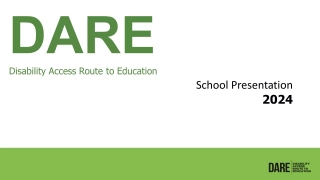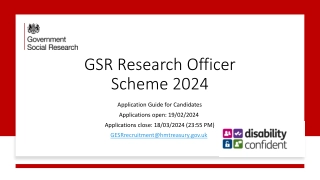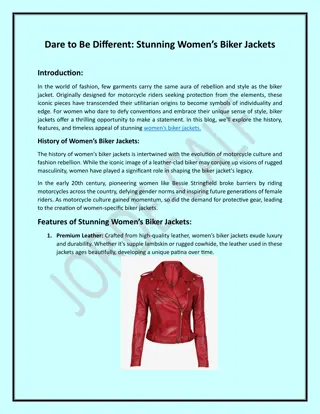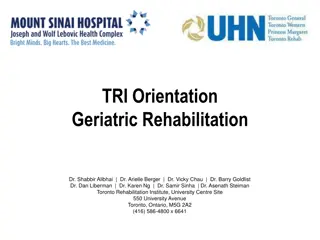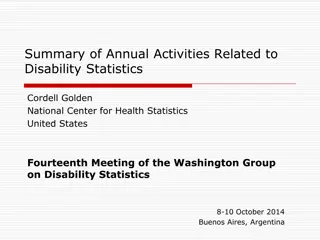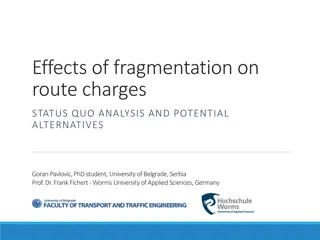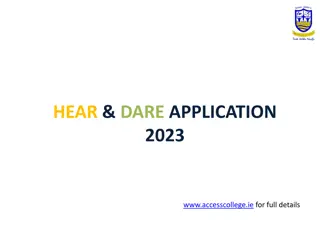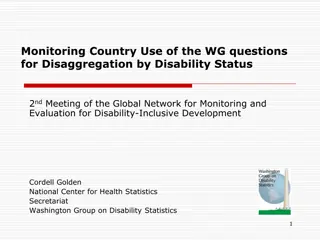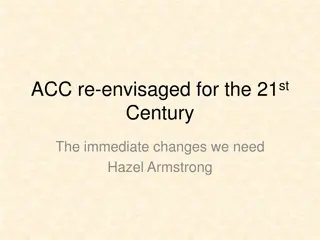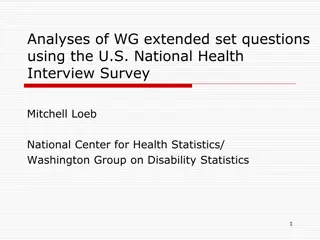An Overview of Disability Access Route to Education (DARE) Scheme
The Disability Access Route to Education (DARE) scheme provides alternative admission opportunities to students with disabilities who may not meet the standard entry requirements. Students with conditions such as autism spectrum disorders, ADHD, physical disabilities, and more are eligible to apply. The application process involves submitting necessary documentation and completing the Supplementary Information Form (SIF) by specific deadlines. Applicants need to apply through the Central Applications Office (CAO) and follow the outlined steps for consideration.
Download Presentation

Please find below an Image/Link to download the presentation.
The content on the website is provided AS IS for your information and personal use only. It may not be sold, licensed, or shared on other websites without obtaining consent from the author. Download presentation by click this link. If you encounter any issues during the download, it is possible that the publisher has removed the file from their server.
E N D
Presentation Transcript
Disability Access Route to Education Schools Presentation
What is DARE? The Disability Access Route to Education (DARE) is a supplementary admissions scheme which offers college places on reduced points to school leavers with disabilities. DARE has been established by a number of higher education institutions as clear evidence shows that disability can have a negative impact on educational attainment at school and progression to higher education.
Who Should Apply? Applicants whose disability had a significant impact on educational performance in school Applicants who may not be able to meet the points for their preferred course due to the impact of disability. Applicants under 23 years as at 1st January 2014
Disabilities eligible for consideration Autistic Spectrum Disorders (including Asperger s Syndrome) ADD/ADHD Blind/Vision Impaired Deaf/Hard of Hearing DCD Dyspraxia/Dysgraphia Mental Health Conditions Neurological Conditions (Brain Injury, Epilepsy, Speech & Language Disabilities) Significant Ongoing Illness Physical Disability Specific Learning Difficulty (Dyslexia & Dyscalculia)
I want to apply to DARE. Whats next? Review DARE Application Guide with your parents or guardians. Apply to CAO by 1 February 2014 . Complete Section A of the Supplementary Info Form and apply to DARE by 1 March 2014. Submit academic reference and evidence of disability to CAO by 1 April 2014.
How to Apply Step 1 Step 2 Apply to CAO www.cao.ie by 17:15 on 1st February 2014. No later than 17:15 on 1st March 2014, you must disclose your disability and/or specific learning difficulty in your CAO application and fully and correctly complete Section A of the Supplementary Information Form (the SIF is a part of your CAO application). If you wish to be considered for the DARE scheme, you must indicate this on Section A of the fully completed SIF by ticking Yes to Question 5 by 17:15 on 1st March 2014. Step 3 You must return the fully completed Second Level Academic Reference (Section B) and Evidence of Disability (Section C) to the CAO by 17:15 on 1st April 2014.
What is the Supplementary Information Form (SIF)? A separate form which gathers additional information on your disability. The Supplementary Information Form has 4 separate sections: Section A completed by you by 1st March 2014 Supplementary Admissions Routes you must opt-in to DARE by 1st March 2014 by ticking yes to Q.5 Section B completed by the school and returned by 1st April 2014 Section C completed by the accepted Medical Consultant / Specialist and returned by 1st April 2014
Section A: Applicant Information Section A is completed by you and asks for specific information on your disability and the supports received in second level. You must also complete a Personal Statement which outlines, from your perspective, the academic impact of your disability or specific learning difficulty. Must be completed by 1st March 2014
Section B Second Level Academic Reference Provides background information on your educational experience and helps to determine appropriate supports in 3rd level This form should be downloaded by you, completed by your school and returned to the CAO School teacher or Guidance Counsellor or Visiting Teacher AND school principal must complete the form The form MUST BE stamped The Second Level Academic Reference must be returned to the CAO by 1st April 2014
Section C Evidence of Disability This form provides verification of your disability and helps to determine appropriate supports at 3rd level This form should be downloaded by you, completed, signed and stamped by the accepted Medical Consultant/ Specialist and returned to the CAO All applicants must complete this form with the exception of the following: Applicants with specific learning difficulties (Dyslexia and Dyscalculia) and applicants with DCD - Dyspraxia/Dysgraphia Applicants who have an existing report completed by the accepted Medical Consultant/Specialist.
Section C Evidence of Disability The form must be signed & stamped by the accepted Medical Consultant/ Specialist or accompanied by the Medical Consultant/ Specialist s business card or headed paper If the form is not verified as outlined above it will not be considered and you will be ineligible for DARE. Evidence from a General Practitioner/ family doctor or support organisation will not be accepted as verification of a disability It is your responsibility to ensure that all sections of the form are completed. The Evidence of Disability must be returned to the CAO by 1st April 2014
Question 5: Supplementary Admissions Routes To be eligible for consideration under DARE, you must tick yes to Question 5 You must do this by 1st March 2014 If you do not tick yes to Q.5 you will not be considered under DARE If you do not tick yes to Q.5 you may still avail of supports in college
How are Applications Screened for Eligibility? To be eligible for DARE your disability must have had a significant impact on your educational performance. Specific criteria have been developed to determine the significance of each disability and the impact on educational achievement. The criteria used for assessing the impact of disability were developed by Disability Advisory Boards, which included college professionals, consultants and specialists in each field of disability, representatives from professional/regulatory bodies and representatives from expert external organisations. Eligibility criteria are available on www.accesscollege.ie and the CAO website
Next Steps in the Application Process You will be informed of your DARE status in June 2014. If you are not eligible for DARE you will be informed of the reasons for your ineligibility. You can request to have your application rechecked if: you believe there was an administrative error in the screening of your application OR your supporting documents were not received by the CAO. You must however have proof of postage and photocopies of the documents to prove that you sent them on time and to the correct location. If you are not eligible for DARE you can still get into college through the CAO if you meet the entry requirements for your course of your choice.
What College Places are Available? Each participating college has allocated a quota of places on a reduced points basis for students entering through DARE. The quota of places available through DARE differs from one institution to another. You must matriculate and meet specific course requirements. Details of quotas and admissions policies can be found on individual college websites and www.accesscollege.ie
Common Errors Failure to disclose a disability on the CAO application form You must indicate that you have a disability/specific learning difficulty on your CAO application form by 1st March 2014 Failure to apply to DARE You must indicate your wish to be considered for DARE by ticking Yes to Question 5 by 1st March 2014 Documentation not submitted on time You must return the Second Level Academic Reference (Section B) and Evidence of Disability (Section C) to the CAO by 1st April 2014 Documentation completed by inappropriate professionals Your Evidence of Disability must be by the accepted medical Consultant/Specialist
Common Errors Documentation out-of-date You must ensure that your Evidence of Disability is completed within the specified timeframe Evidence of Disability Form not stamped The Evidence of Disability Form must be signed & stamped by the accepted Medical Consultant/ Specialist OR signed & accompanied by their business card or headed paper Not enough information on reports verifying a disability You must ensure that reports verifying a disability provide the same detail as the Evidence of Disability Form. Students with SpLD, should download the Acceptable Report for SpLD and Summary Sheet.
Supports in College You don t have to be eligible for DARE to get support in college A needs assessment is conducted to identify your specific support requirements. Supports may include: Orientation Programmes Learning Support Assistive Technology Library Support Exam Support Note-taking/Support Worker Academic Tuition
More Information www.accesscollege.ie www.cao.ie DARE Flyers and Application Guides Better Options Events 4thDecember 2013 NCI DARE & HEAR Application Advice Clinics Nationwide, Saturday 11th January 2014 Individual college websites


